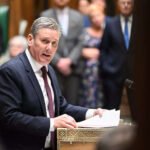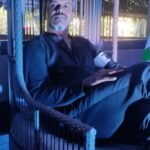Imran Khan, the former Prime Minister of Pakistan, expressed his gratitude to the government for placing him on the Exit Control List (ECL), preventing him from leaving the country. In a Twitter post, Khan stated that he had no intentions of traveling overseas as he neither possessed properties nor engaged in any businesses abroad. The move to bar Khan, his wife Bushra Bibi, and other leaders and former assembly members of his political party, the Pakistan Tehreek-e-Insaf (PTI), from international travel was reportedly implemented on Thursday.
Khan’s response to the situation was calm and composed. He conveyed his appreciation to the government for including his name on the ECL, emphasizing that his lack of foreign properties, businesses, or bank accounts made international travel unnecessary. Instead, he expressed a desire to spend any future vacations in the scenic mountains of northern Pakistan, which he referred to as his favorite place on Earth.
While the specific reasons behind the decision to place Khan and his associates on the no-fly list were not mentioned in the provided information, it is common for governments to impose travel restrictions on individuals who may be involved in ongoing legal or political matters. However, Khan’s response indicates that he is undeterred by the situation and remains focused on his domestic commitments.
Imran Khan, a former cricketer, rose to prominence as a political figure in Pakistan and became the country’s prime minister in August 2018. Throughout his tenure, he implemented various policies aimed at addressing corruption, improving the economy, and strengthening governance. Khan’s party, PTI, has been actively involved in pushing for socio-economic reforms and combating inequality in Pakistan.
Despite facing numerous challenges during his time in office, including opposition from rival political parties and economic difficulties, Khan maintained a strong position on issues such as national security and foreign policy. His government worked towards fostering regional peace and stability, particularly in relation to neighboring countries such as India and Afghanistan.
Khan’s statement about not owning properties or businesses abroad aligns with his emphasis on transparency and accountability within his government. By publicly declaring his lack of financial interests outside of Pakistan, he seeks to present himself as a leader dedicated to serving his country’s interests without personal gain.
The implementation of the ECL on Khan and other PTI members is likely to draw attention from the media and political observers. While it is unclear how long these travel restrictions will remain in place or what implications they may have for Khan’s political career, his response suggests that he is unperturbed and remains committed to his domestic responsibilities.
As the situation develops, it will be interesting to see how Khan’s supporters and political opponents react to the news. Additionally, the public’s perception of the government’s decision and its potential impact on Khan’s political standing could influence the dynamics of Pakistani politics in the coming months.
In the meantime, Khan continues to focus on his work within Pakistan, highlighting his dedication to national issues and his desire to spend leisure time in the country’s picturesque landscapes. The former prime minister’s resilience and steadfastness in the face of challenges will undoubtedly play a significant role in shaping the future trajectory of his political career.




